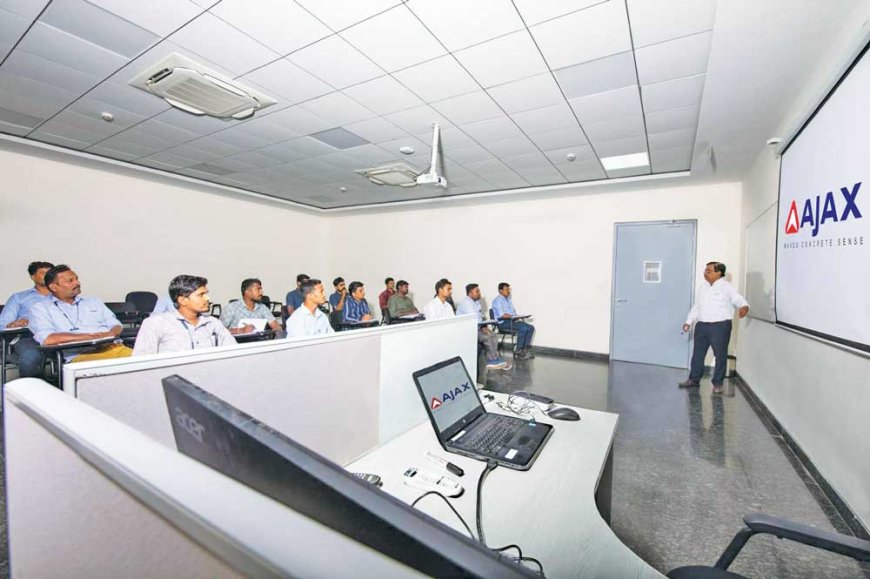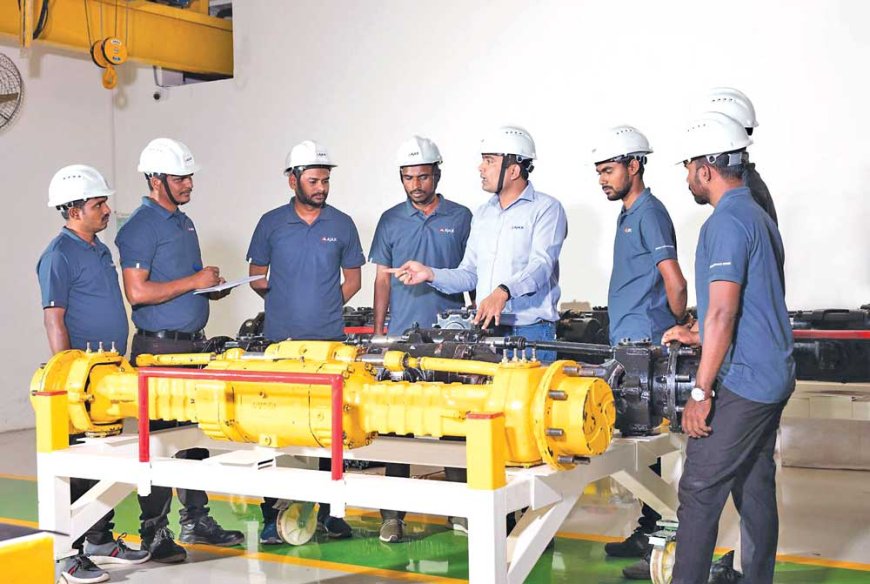IESC has successfully trained more than 50,000 personnel through its state-of-the-art operator training centers.

How do you look at the 10-year journey of Infrastructure Equipment Skill Council (IESC) as an apex skilling body for construction equipment?
Since its inception in 2014, the Infrastructure Equipment Skill Council (IESC) has made significant strides as the apex skilling body for the construction equipment sector in India. Promoted by the Indian Construction Equipment Manufacturers’ Association (ICEMA) and supported by the Confederation of Indian Industries (CII) and the National Skill Development Corporation (NSDC), IESC has developed 40 job roles covering over 80% of the workforce needs in the sector. The council has accredited more than 60 training partners and certified over 800 trainers, ensuring high-quality training standards across the country. To date, IESC has successfully trained more than 50,000 personnel through its state-of-the-art operator training centers, which are supported by major construction equipment OEMs. This extensive training initiative is aligned with IESC’s vision to create a sustainable, industry-aligned ecosystem for robust skill and entrepreneurship development in the infrastructure equipment sector.
Over the last decade, IESC has actively collaborated with multiple stakeholders such as OEMs, and Skill Development Missions and corporations. These collaborations have been instrumental in making careers in the construction equipment industry aspirational for the youth.
Traditionally, the construction equipment industry has been heavily dominated by men. However, IESC has made notable advancements in promoting women’s participation through initiatives such as the ‘Lady Operators’ program. This initiative has certified female operators, highlighting the ease of operating equipment like Self-loading concrete mixers, excavators, cranes, and others. Over the years, there has been a notable increase in the participation of women in the construction equipment industry, much of which can be attributed to the continual efforts of IESC.

How do you assess the current skill level of construction equipment operators in the industry?
The Confederation of Indian Industries (CII) projected last year that the country’s construction equipment industry is set to grow 15% annually over the next five years. Over the next five years, the construction equipment sector anticipates significant growth, driven by infrastructure development and technological advancements. Projections indicate that the demand for skilled operators will increase by 20-25%, necessitating a substantial scale-up in training initiatives.
With the IESC and the Ministry of Skill Development & Entrepreneurship (MSDE) actively working towards targeted training and certification programs, there is optimism that these efforts will help create a skilled talent pipeline, attract new talent, and reduce attrition rates in the industry. The Infrastructure Equipment Skill Council (IESC) plans to expand its training programs to cover emerging technologies such as automation and telematics, which are becoming integral to modern construction equipment.
However, challenges include ensuring widespread access to quality training, particularly in rural areas where infrastructure projects are proliferating. Additionally, there is a pressing need to address the skill gap among the existing workforce, many of whom lack formal training. The pace of technological change also requires continuous curriculum updates to keep training relevant. Another significant challenge is securing industry partnerships and funding to support large-scale training initiatives, especially considering economic uncertainties. Addressing these challenges will be crucial for the sector to maintain a skilled workforce capable of meeting future demands and ensuring safe, efficient operations.

What inspired your company to develop training and skilling initiatives for construction equipment operators?
AJAX School of Concrete is an educational initiative established by AJAX Engineering to provide comprehensive training and skill development programs for aspiring professionals in the construction equipment industry. Our decision to undertake this skilling project is rooted in a profound sense of purpose and a commitment to effecting positive change in the lives of individuals and communities. Recognizing the significant skill gap, we felt a strong responsibility to help address this challenge. We are particularly motivated by the opportunity to provide targeted training programs in high-demand industries such as Construction and Concrete. These programs equip individuals with the skills necessary to secure meaningful employment and build sustainable careers. Additionally, the pressing need to bridge the prevailing skills gap and align training initiatives with the evolving demands of the labor market serves as a compelling call to action.
We initiated our program in May 2019 and, despite setbacks such as the COVID-19 pandemic, we have successfully trained approximately 500 technicians, including 200 operators and 300 technicians, up to FY24. This achievement underscores our dedication to providing valuable skills to the workforce. By starting new training programs for operators and technicians on the first Monday of each month, we maintain a consistent effort to empower individuals with the necessary expertise. Our comprehensive training, certification, and employment support initiatives have resulted in 70% of individuals being trained by AJAX School of Concrete securing employment opportunities. At AJAX, we believe that by empowering individuals with the skills and knowledge needed to succeed, we can unlock their full potential and create pathways to a brighter future.
Briefly outline the objectives and goals of your training programs for operators. Could you describe the structure and format of your training programs?
The primary objectives of our training programs are to equip participants with the necessary skills to operate and maintain various types of construction equipment, provide comprehensive theoretical and practical training to ensure a deep understanding of the machinery, and offer certifications that enhance employability.








